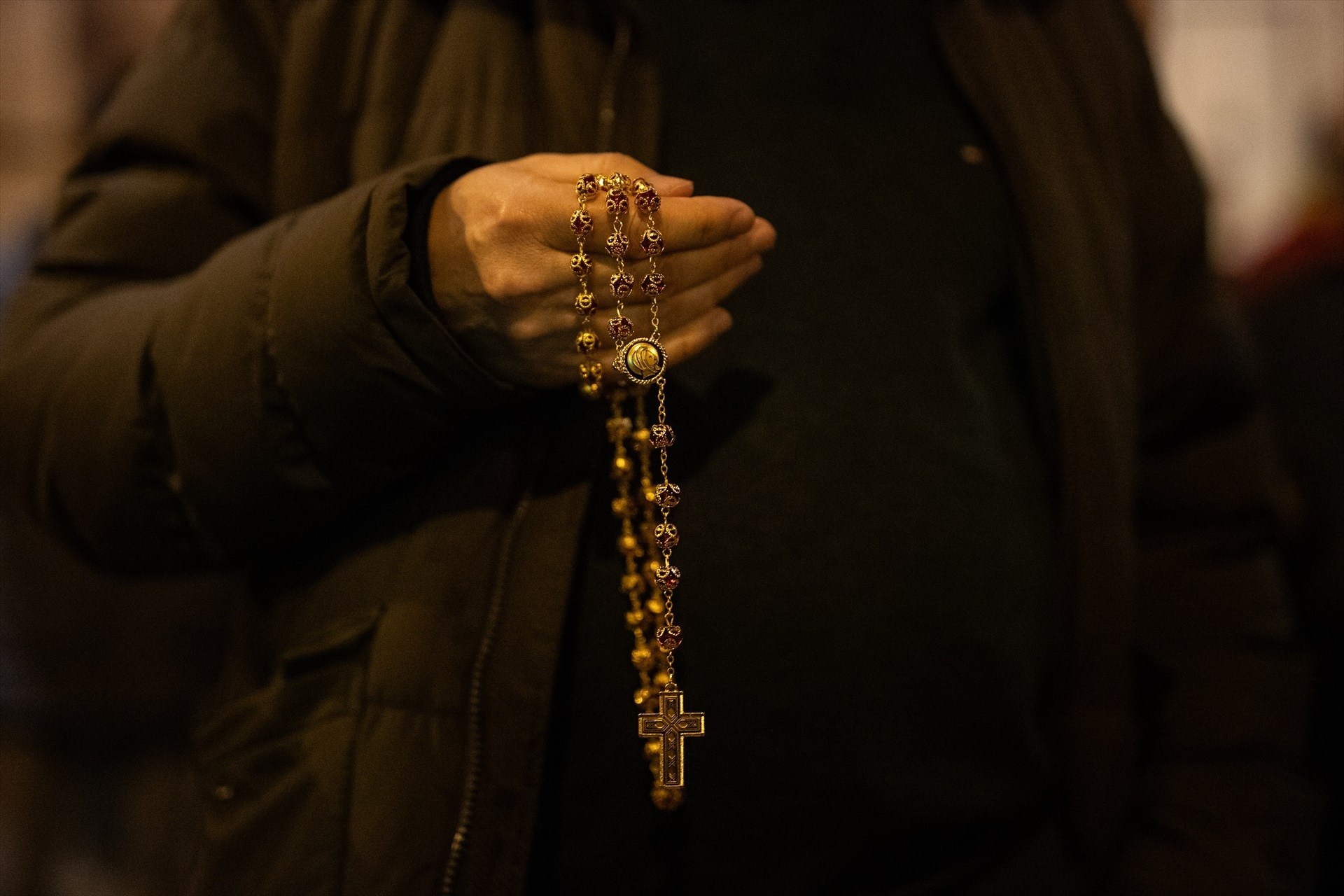They have been carrying on nightly for almost a month. But now, the far-right protests against the Catalan amnesty law, outside the Socialist party headquarters in Madrid's Calle Ferraz, have given rise every evening to a grotesque National-Catholic rally in which those present are invited to recite the rosary "for Spain". Far-right focuses on social media have become key in encouraging people to carry on their participation in these rallies, with messages highlighting aspects like the important role being played by the so-called Tsunami judge - Manuel García-Castellón - who is taking judicial actions in the case against the Democratic Tsunami protest platform, aimed at preventing the pro-independence Catalan leaders from benefiting from a future amnesty law.
One of the leaders of the ritual of prayers to the Virgin Mary is young José Andrés Calderón, who was this week fined by Spanish police for having organized protests without applying for the relevant permission from the Spanish government delegation in the capital. On social media, Calderón has denounced that he has been fined "for praying" and has insisted that he will continue with the protest in the coming days. Other have supported him by underlining the great need for prayer at this time, and in particular as a way of defending the judge in the Tsunami case: "Andrés, we need to pray a lot for judge García-Castellón, he may be the saviour of Spain", says X social media user @florecicadabril, who introduces herself as a biologist, in a message to the Madrid youth.
Andrés hay que rezar mucho por el juez García-Castellón, puede ser el salvador de España.
— ℰli[$♤] 🇪🇸 (@florecicadabril) November 29, 2023
The young activist takes issue with the fine that police imposed on him on Tuesday for an unannounced rally to recite the rosary: "The most important thing about what happened yesterday in C. Ferraz was not the fines or the police action. The fundamental thing was the more than 1,000 people who prayed to the Virgin Mary. Without any fear and for the good of Spain. The voice of God is present in Calle Ferraz. Let's carry on!” In recent weeks, the protests against the amnesty have lost their resonance. In the first few days there were incidents and police baton charges. At the moment when the PSOE's pacts with the pro-independence parties were announced, uncontrolled anger was unleashed in Madrid, raising the adrenalin level among the extremist rightists and Francoist hangers-on who can produce a visible presence in the Spanish capital.
The protests in Ferraz, aimed at cornering the PSOE, were mainly driven by far-right Vox and satellite organizations such as Revuelta and Noviembre Nacional, which continue to make noise on the social media. At the moments of greatest intensity, crowds of 8,000 people gathered outside the Socialist headquarters. There were calls for continuous mobilization, but as the weeks have gone by the protest has died away, with little participation. Now it seems to have opened a process of fossilization with the most retrograde elements of the anti-amnesty movement.
This National-Catholic movement, which is a descendant of the ideological identity of Francoism, has even been criticized by one of the leading journalists in Madrid's right-wing media, Federico Jiménez-Losantos. On his radio show, he criticized praying in this way in public and demanded that people transfer this spirituality to the private sphere.

